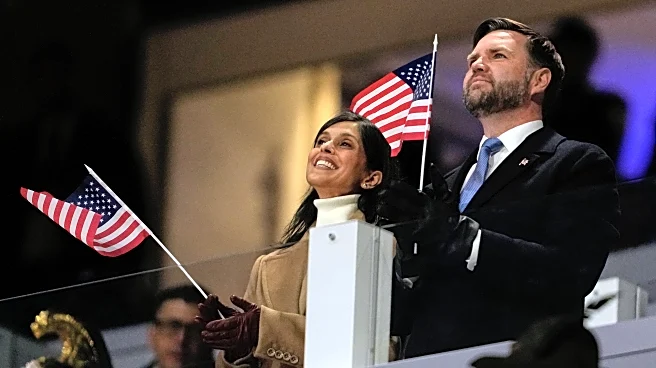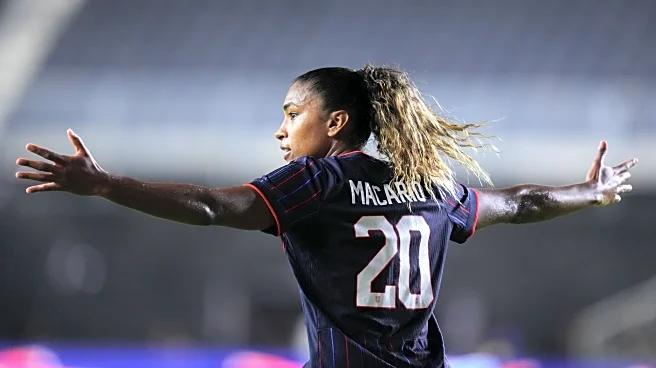What's Happening?
Auburn's football team showcased the talents of receivers Cam Coleman and Eric Singleton in a recent game against Vanderbilt. Coleman made a remarkable one-handed catch for a touchdown and followed it with another one-handed catch for a game-tying two-point
conversion. Despite their evident skills, these players have had limited opportunities throughout the season, raising questions about previous coaching decisions. Interim head coach DJ Durkin and offensive coordinator Derrick Nix emphasized the importance of involving Coleman and Singleton in the game plan, resulting in 21 catches between them. Quarterback Ashton Daniels, in his first start, contributed significantly by passing for 353 yards and running for 89 more.
Why It's Important?
The decision to focus on Coleman and Singleton highlights a shift in Auburn's offensive strategy, potentially improving their performance in future games. This change could impact Auburn's standing in college football, as maximizing the talents of key players can lead to more victories. The successful execution of this strategy by interim head coach DJ Durkin and offensive coordinator Derrick Nix demonstrates their ability to adapt and optimize player performance, which may influence Auburn's coaching decisions moving forward. The performance of quarterback Ashton Daniels also suggests a promising future for Auburn's offensive lineup.
What's Next?
Auburn may continue to leverage the skills of Coleman and Singleton in upcoming games, potentially altering their season trajectory. The coaching staff's ability to adapt and make strategic decisions will be crucial in maintaining this momentum. Observers will be watching to see if Auburn can consistently integrate these players into their game plan, which could lead to improved results and influence future coaching hires or strategies. The team's performance in subsequent games will be a key indicator of the effectiveness of these changes.
Beyond the Headlines
The emphasis on Coleman and Singleton's talents may lead to broader discussions about player utilization and coaching strategies in college football. This situation underscores the importance of recognizing and capitalizing on individual player strengths, which can significantly impact team success. It also highlights the potential for interim coaches to make impactful decisions that can alter the course of a team's season, raising questions about leadership and decision-making in sports management.
















